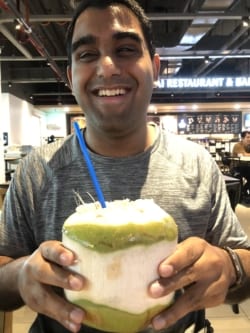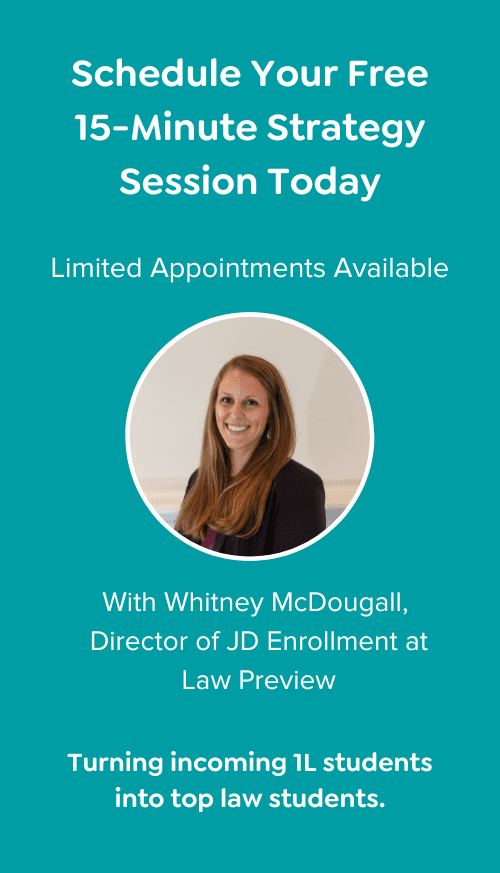If you’ve gained admission to law school, you’re starting to realize the hardest part isn’t just getting in — it’s excelling once classes start in next fall.
We’ve asked seven Law Preview alums to reflect back apply 20/20 hindsight to some of your burning questions, like: “Knowing what you know now, what advice would you give to students who are about to begin their 1L year?”, “What are the biggest mistakes that you saw classmates make during the 1L fall semester?” and “What were your favorite study aids during 1L and what made them so helpful?”… and, our personal favorite, “What is the one thing you wished you did NOT stress out about during the law school application process?”
Check out the article below to read their objective suggestions for navigating law school and, in some cases, learn what they wished they had done differently.

Paras Shah
Harvard Law School
Knowing what you know now, what advice would you give to students who are about to begin their 1L year?
Starting law school is stressful. Do not feel like you need to read all the “how to ace law school” books out there (and absolutely do not read your casebooks before the semester starts). Take the time off to relax and recharge before you hit the semester running. The first year is also stressful‚ make sure you take time for your mental, physical, and emotional health. Go the gym, talk to friends outside law school, watch a movie (I went to pub trivia most Tuesdays). The time away from your books will really help in the end and you do not need to spend every waking moment working, even if it feels that way.
Remember why you came to law school. The first year can feel abstract and you might question what you are doing in law school, wonder if you really belong there, or feel lost. This happened to me, and I spent a lot of time second guessing my choices. I found it helpful to recall why I went to law school in the first place and engaged in a lot of pro bono work which helped to ground me and provided a sense of perspective.
If you are in the position to transfer at the end of 1L consider the tradeoffs. Transferring to a top law school can open a lot of doors, but every law school provides opportunities. I decided to transfer because I wanted to work in a geographic market on the east coast which would have been difficult to access from a west coast law school. However, I also gave up a position on Law Review, research with professors, and the chance to mentor 1Ls. While I am happy with my decision, it is not the right path for everyone so make sure to consider what matters to you. If you do transfer, keep in touch with your 1L professors who will likely still serve as mentors if you get to know them and build genuine relationships.
Overall, 1L is challenging, but also filled with opportunities so make the most of them.
What was your favorite 1L subject, and why?
Civil Procedure! Professor Christopher Whytock was incredibly engaging and really made me think about the importance of procedure, which can advance or end a case when used correctly. I also thought a lot about the tradeoffs between access to justice for litigants and the need for judicial economy which we bake into the federal court system.
How did you handle the competition/stress of 1L? What tactics did you use to avoid the stress that many 1L students experience?
I talked to friends outside of law school. During 1L it can feel like your whole world is just law school and your section – you see the same people everyday, study together all the time, and constantly talk about school. Get some outside perspective to remember what is happening in the rest of the world. I also got away from campus by taking trips to Disneyland with friends (perk of a Southern California law school) and going to pub trivia on Tuesdays.
Describe the outlining approach did you employed and when/how you began the outlining process.
I used the class syllabus to form the backbone of my outline and then filled in information from each case. I looked for the “big picture” rule from each case – what was the main takeaway? Why did we read this? What did the add to the class/legal analysis? I also outlined policy arguments if the professor indicated they might be helpful on the exam. Once I had my initial outline I took a few practice exams to fine tune it and become more comfortable with using it under time pressure. You can also form a short “attack outline” with the key issues and rules you need to access quickly. I probably should have started outlining in October, but only got to it around Thanksgiving which increased my stress level unnecessarily.



